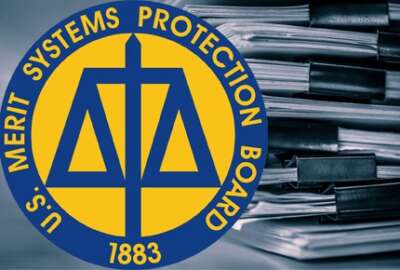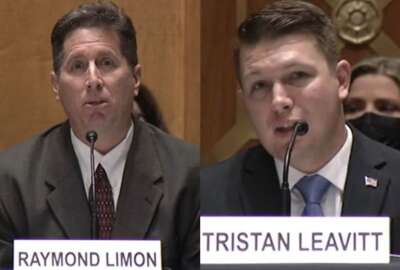MSPB looks to streamline processes, avoid fallout from future board vacancies
The goal of the new interim rule is to create an efficient, expedited appeals process, while addressing “potential flaws” in prior regulations, MSPB said.
The Merit Systems Protection Board (MSPB) is making some regulatory changes to hedge against congested workflows that could stem from potential future leadership vacancies.
After a five-year stretch without any politically appointed MSPB members led to an unprecedented backlog of roughly 3,600 undecided federal employee appeals, MSPB published updated operational proceedings last week to clarify how the agency would operate in the case of a future lack of quorum.
The interim final rule, which was published to the Federal Register on Sept. 9, will let the agency take certain adjudication steps to continue processing an employee appeal case even in the absence of a quorum. The intention of the update, MSPB said, is to create more efficient and expedited appeals processing at both the regional and headquarters levels, while addressing “potential flaws” in prior regulations.
“Between 2017 and 2022, the board encountered numerous scenarios which under existing regulation or policy required board vote, but which were unable to be processed without a quorum,” MSPB wrote in the regulations, which will officially take effect Oct. 7. “The board is implementing this modification in order to expedite processing in certain scenarios in the event that it is again unable to act due to a loss of quorum in the future.”
MSPB clarified in the new rule that in the case of at least two vacancies on the three-member board, either a single MSPB member or another board staff member will still be able to assign certain work duties to an appointed administrative judge.
But even with the new regulations, there are still limitations on what the agency can accomplish without at least two board members. Specifically, MSPB’s new regulations still won’t let a single board member or staff member actually make a final decision on a case without a quorum. Instead, the single member would only be able to reassign work done prior to making a decision to an authorized official.
Still, allowing limited work to take place even when there are board vacancies will help facilitate the final decision-making process once a quorum is restored, MSPB explained in the regulations.
Although the section of the interim final rule that may pack the most punch relates to what the agency can still accomplish without a quorum, the rule is the culmination of a broader review of MSPB’s internal regulations that began in 2019 “to further improve its adjudications and operations,” the agency wrote.
Another change stemming from the interim final rule, for example, explained that examples MSPB lists are not “binding interpretations,” and rather only illustrate some possible uses. Still another change clarified that MSPB administrative judges should only hold a hearing if an appellant specifically requests one.
Though the interim final rule will become official in just a few weeks, MSPB is still asking for feedback from stakeholders for the next 60 days. The board said it will make adjustments to the new rule, as needed, based on the input it receives.
As an agency, MSPB is responsible for adjudicating appeals on personnel cases, aiming to protect federal employees against prohibited personnel practices such as whistleblower retaliation.
In 2022, the Senate confirmed two board members, Raymond Limon and Tristan Leavitt, allowing the agency to once again begin issuing decisions after a five-year hiatus. Just a couple months later, MSPB Chairman Cathy Harris was confirmed to her position in May 2022. And after Leavitt departed the agency, President Joe Biden nominated, and the Senate subsequently confirmed, Henry Kerner to the board in May 2024.
The confirmed board has drastically reduced the appeals backlog. By April 2024, MSPB had issued decisions on roughly 3,000 pending appeals cases. The agency said it expects to fully clear its inventory in fiscal 2025.
“Some of these cases are thorny and hard, and they deserve extra time to figure out. But we’re working very hard. And what we’re doing is the oldest cases and the newest cases simultaneously,” Harris told The Federal Drive in April. “We’re coming in toward the middle. You’ll see that we continue to do that. But our pace is, I think, pretty fierce.”
Copyright © 2024 Federal News Network. All rights reserved. This website is not intended for users located within the European Economic Area.
Drew Friedman is a workforce, pay and benefits reporter for Federal News Network.
Follow @dfriedmanWFED






